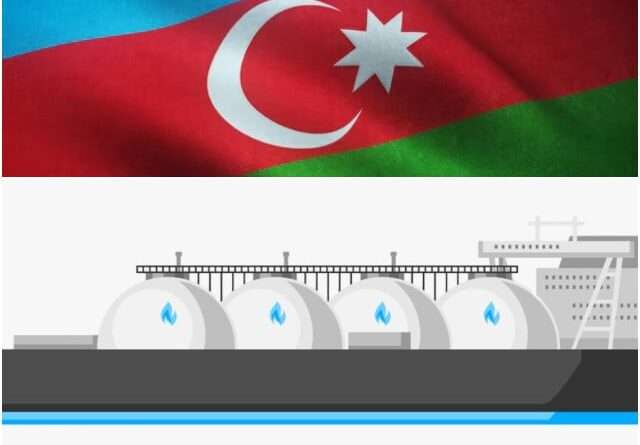Pakistan’s LNG Import Deal with Azerbaijan: A Strategic Shift
|
Getting your Trinity Audio player ready...
|
The Shift in LNG Import Strategy: A Surprising Decision
Pakistan has made a strategic move to purchase liquefied natural gas (LNG) from Azerbaijan after deferring imports from Qatar. This decision comes at a time when the country is facing challenges in balancing its domestic energy needs with the growing demand for gas across various sectors. Pakistan LNG Ltd (PLL), a state-owned enterprise responsible for LNG procurement, convened an emergency meeting to review the current state of gas demand and supply. The board is expected to approve the offer price from Azerbaijan, signaling a major shift in Pakistan’s energy procurement strategy.
The Rising Demand and Supply Gap in Pakistan’s Energy Sector
Pakistan has long struggled with a gas supply shortfall, but recent developments have brought to light the complex dynamics of the country’s LNG imports. Sui Northern Gas Pipelines Limited (SNGPL), the public utility supplying gas to key regions such as Punjab, Khyber-Pakhtunkhwa, and Islamabad, has requested at least one LNG cargo from Azerbaijan to meet the expected shortage of supplies in January. This request highlights the ongoing challenges in managing the energy sector efficiently, despite efforts to curtail local production.
Why Qatar LNG Imports Are Being Deferred
Pakistan’s decision to defer LNG imports from Qatar for 2026 is a significant development. Typically, the country relies on long-term contracts with Qatar, which offer a stable supply of LNG at competitive rates. However, the government has opted to defer five LNG cargoes from Qatar due to a glut in the market. The country’s energy sector has experienced a slowdown in large-scale manufacturing (LSM) growth and a reduction in electricity demand, both contributing to the excess supply of gas.
Local Gas Exploration Curbed to Address the Surplus
In tandem with the LNG import deferral, Pakistan has reduced local gas exploration efforts. The government has instructed producers to curtail production by 250 to 300 million cubic feet per day (mmcfd). This move aims to address the glut in the imported gas system, despite the fact that Pakistan faces year-round shortages of gas. By limiting local production, the government hopes to balance the supply-demand equation and stabilize gas prices for domestic consumers.
The Role of SOCAR in Azerbaijan’s LNG Supply to Pakistan
Azerbaijan’s State Oil Company (SOCAR) has emerged as a key player in this new LNG import arrangement. SOCAR is set to provide LNG cargoes under the framework agreement between Azerbaijan and Pakistan. According to Petroleum Division officials, SOCAR intends to submit an offer for the supply of LNG cargoes on Monday. This offer will be valid for a brief period, highlighting the urgency and complexity of the situation.
The Past Performance of SOCAR in LNG Deliveries
Some members of the PLL board have expressed concerns about the past performance of SOCAR in LNG delivery to Pakistan. There are questions about the reliability of past shipments and whether Azerbaijan’s company can meet the growing demand for LNG at the required scale. Despite these concerns, the government remains optimistic that this partnership will help bridge the energy gap, at least temporarily, until more stable solutions are found.
The LNG Pricing Debate: High Costs and Economic Implications
One of the most contentious issues surrounding LNG imports is the pricing. The LNG that Pakistan will purchase from Azerbaijan is expected to be more expensive than the long-term deals the country has with Qatar. The high cost of short-term LNG supply contracts has raised questions among energy experts and policymakers. Some members of the PLL board have pointed out that asking local producers to cut supplies while importing higher-cost LNG may not be the most economically viable strategy.
Managing the Economic and Environmental Impact
Despite the higher costs, the government has justified the LNG import from Azerbaijan, stating that it is necessary to meet the immediate energy needs of the country. However, there is concern about the long-term economic and environmental implications of relying on imported LNG. The increased use of imported energy sources could further strain Pakistan’s foreign exchange reserves and contribute to higher energy costs for consumers.
The Azerbaijan-Pakistan Framework Agreement: A Long-Term Energy Solution?
In 2017, Pakistan and Azerbaijan signed an inter-governmental agreement (IGA) that laid the foundation for future energy cooperation between the two countries. Under this agreement, both nations have committed to working together on energy projects, including the development of LNG supply and trading opportunities. The recent sale-purchase agreement between Pakistan State Oil (PSO) and SOCAR is the latest step in this ongoing collaboration. Both countries are also exploring joint projects in the petroleum sector, with an emphasis on exploration and production.
Strategic Benefits of Azerbaijan-Pakistan Energy Cooperation
The partnership with Azerbaijan presents several strategic benefits for Pakistan. First, it diversifies the country’s energy import sources, reducing its dependence on a single supplier. Second, the cooperation between SOCAR and PSO could pave the way for joint investments in infrastructure, such as LNG terminals and storage facilities. These initiatives would strengthen the energy security of both nations and ensure a more stable energy supply in the future.
Managing the LNG Imports: Payment Terms and Operational Details
Under the framework agreement between PSO and SOCAR, the payment for each LNG cargo will be made within 30 days of delivery, with no discounts or offsets allowed. In case of delayed payments, interest will be charged at a rate of SOFR plus 2% per annum. The terms of this agreement are intended to ensure smooth transactions and avoid payment disputes that could disrupt the LNG supply.
The Future of Pakistan’s LNG Imports: A Balancing Act
As Pakistan continues to navigate the complexities of its LNG imports, the focus will remain on balancing the immediate need for energy with long-term sustainability. The decision to import LNG from Azerbaijan is part of a broader strategy to stabilize the energy supply, but it also raises important questions about the future of Pakistan’s energy policy. The government must carefully assess the economic impact of high LNG prices and explore alternative energy sources to reduce its dependence on imported gas.
FAQs:
1. Why did Pakistan defer LNG imports from Qatar?
Pakistan deferred LNG imports from Qatar due to a glut in the gas market, which resulted from a slowdown in manufacturing growth and reduced electricity demand.
2. How will importing LNG from Azerbaijan help Pakistan?
LNG from Azerbaijan will help meet the short-term energy demands of Pakistan, especially during the winter months when gas consumption typically increases.
3. What are the concerns about the high cost of LNG imports?
The high cost of short-term LNG contracts could strain Pakistan’s economy, especially when local producers are being asked to reduce gas supplies to address the glut in the market.
4. What is the role of SOCAR in Pakistan’s LNG imports?
SOCAR, the state-owned energy company of Azerbaijan, will supply LNG to Pakistan under a framework agreement between the two countries.
5. How does the Pakistan-Azerbaijan energy partnership benefit both countries?
The energy partnership allows both countries to diversify their energy sources, explore joint projects in the petroleum sector, and enhance energy security
MUST READ:
https://skipper.pk/2024/12/08/balochistan-value-added-products/




